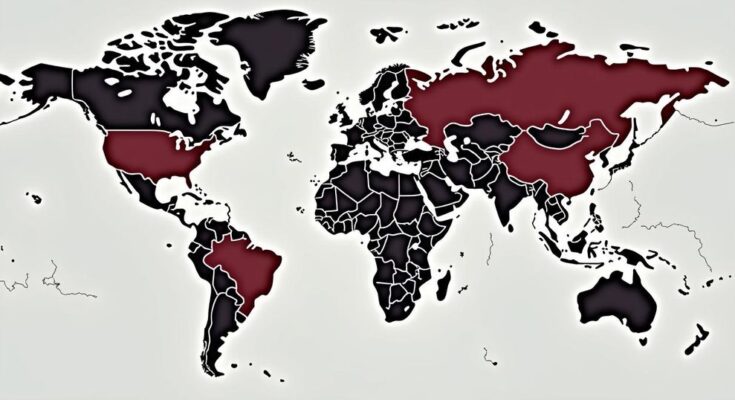Mpox, a viral disease currently spreading rapidly from Africa with cases reported in Sweden, Thailand, the Philippines, and Pakistan, has been classified as a public health emergency by the WHO. The continued emergence of a more dangerous variant, Clade 1, alongside ongoing infections from the milder Clade 2 strain, highlights an urgent need for global health vigilance.
The mpox virus, previously known as monkeypox, has seen a concerning escalation of cases internationally, with a particularly alarming new strain emerging from Africa. In recent weeks, the number of countries reporting infections has increased beyond those traditionally associated with the disease. Four nations—Sweden, Thailand, the Philippines, and Pakistan—have confirmed mpox cases outside of Africa, which has recorded fourteen nations with ongoing outbreaks. The World Health Organization (WHO) has classified the current mpox situation as a “public health emergency of international concern,” aiming to clarify that mpox should not be equated with COVID-19, even as it has declared a second emergency alert related to mpox in two years. The virus is primarily being transmitted through skin-to-skin contact and has raised worry due to the emergence of Clade 1, a purportedly more grave variant. Although historical infections centered around Clade 2, the ongoing spread of Clade 1 and its offshoot, Clade 1b, presents new challenges to global health systems. In Africa, mpox has been noted in numerous locations, with the Democratic Republic of the Congo (DRC) bearing the brunt of the outbreak, reporting a staggering 13,791 cases and 450 deaths. Cases have also emerged in neighboring countries like Kenya, Rwanda, and Uganda, marking the detection of the new Clade 1b strain. In Asia, Thailand has reported its first Clade 1b case, while the Philippines noted continued instances of the milder Clade 2 variant. Sweden recorded a solitary Clade 1 case, raising concerns about potential further transmissions in Europe given the connectivity with African nations. No cases of the Clade 1 strain have been reported in the Americas, whilst no confirmations have surfaced in the Middle East or Oceania at this juncture. Public health officials across these regions maintain vigilance to prevent any future outbreaks.
The mpox virulence has been exacerbated by the emergence of a stronger variant known as Clade 1. The outbreak was initially concentrated in the Democratic Republic of the Congo but has since spread to other African nations and globally. With the detection of cases in Europe and Asia, health organizations are particularly concerned about the implications of increased international travel. As of August 2023, data indicates a rise in reported cases, underscoring the necessity for robust monitoring and response mechanisms to mitigate the spread of mpox.
In summary, the mpox outbreak has transitioned from a localized epidemic in Africa to an international health concern with confirmed cases reported in Asia and Europe. The rapid spread of both Clade 1 and its variant Clade 1b necessitates heightened global surveillance and readiness to address potential outbreaks. The WHO continues to provide guidance to nations involved, emphasizing the need for public health interventions to curb further spread.
Original Source: www.aljazeera.com




